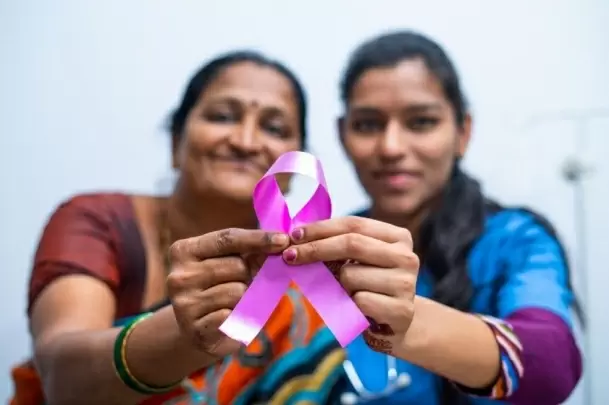Study Finds 200 Chemicals in Food Packaging Linked to Breast Cancer
24-September-2024

A team of researchers has identified nearly 200 potential breast carcinogens in food packaging materials, including plastics, paper, and cardboard highlighting widespread exposure despite existing regulation.
The findings, published in 'Frontiers in Toxicology' on Tuesday, underscore an urgent need for stronger preventative measures to reduce these chemicals in everyday products.
"This study is important because it shows that there is a huge opportunity for prevention of human exposure to breast cancer-causing chemicals," said Jane Muncke, Managing Director of the Food Packaging Forum and co-author of the study.
"The potential for cancer prevention by reducing hazardous chemicals in your daily life is underexplored and deserves much more attention," she added.
Breast cancer is the second most common cancer worldwide. It is the number one cancer in women.
In 2022, 2.3 million women were diagnosed with breast cancer and 670,000 died globally, according to the World Health Organization (WHO).
For the study, the team compared a recently published list of potential breast carcinogens. They found 189 potential breast carcinogens have been detected in food contact materials (FCMs), including 143 in plastics and 89 in paper or board.
Further, the team limited their study to the most recently available studies in 2020-2022.
They also found evidence of exposure to 76 suspected mammary carcinogens from FCMs purchased all over the world, 61 of which (80 per cent) are from plastics.
This indicates continued exposure of the global population to these chemicals under realistic use conditions.
Importantly, the food contact materials were purchased within the last few years from markets in highly regulated regions, including the EU and the US.
Despite existing regulations in these countries, intended to limit carcinogenic substances in FCMs, the study highlights gaps in current regulatory frameworks.
"Our findings imply that chronic exposure of the entire population to suspected mammary carcinogens from FCMs is the norm and highlights an important, but currently underappreciated, opportunity for prevention," the researchers said. --IANS
Suspended Kerala IAS Officer Prasanth Raises Promotion Demand During Hearing
How BluSmart Promoters Diverted EV Loans, Bought Flat In DLF Camellias
Homegrown Coffee Chain Nothing Before Coffee Raises $2.3 Million Funding
Supreme Court to Hear Pleas Challenging Waqf Act 2025 Today
Kerala Minister Slams NCERT for Hindi Titles in English Textbooks








